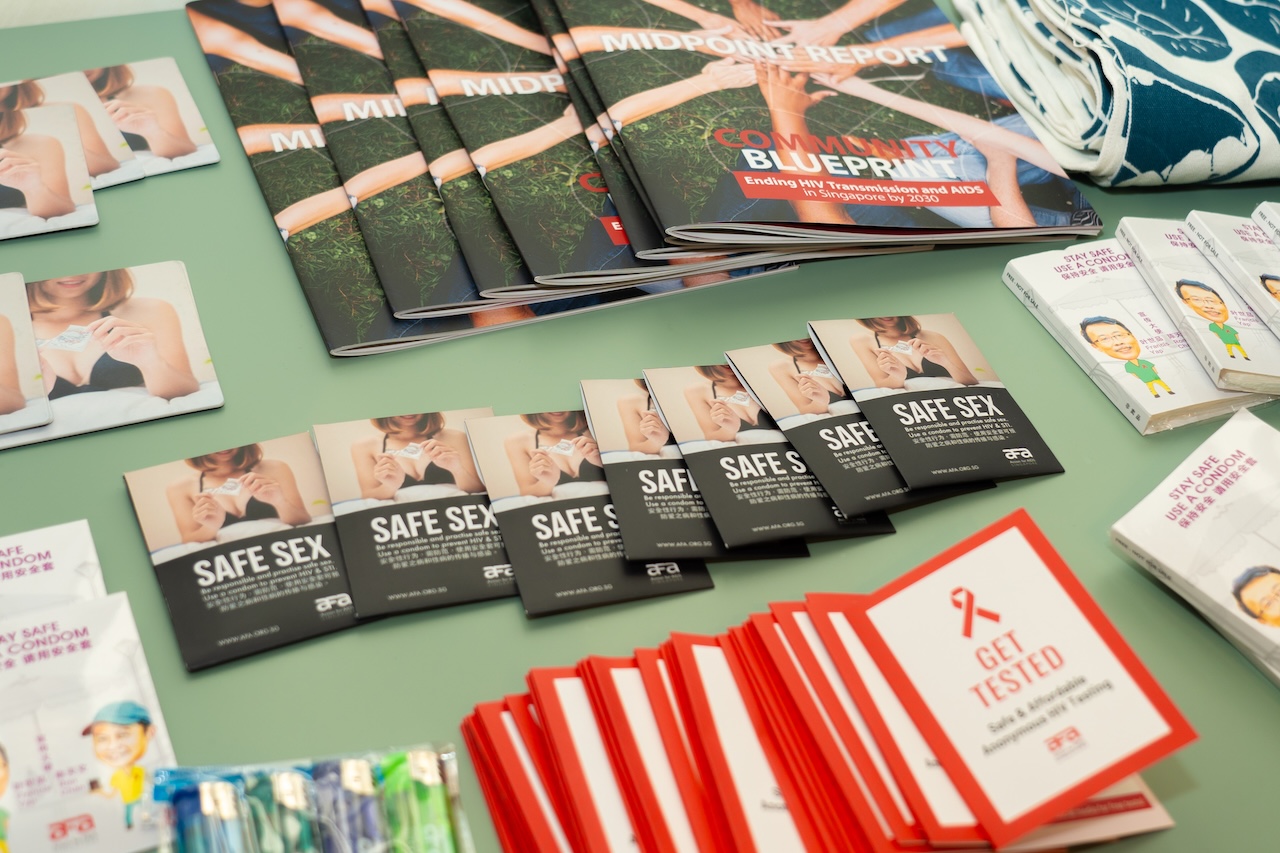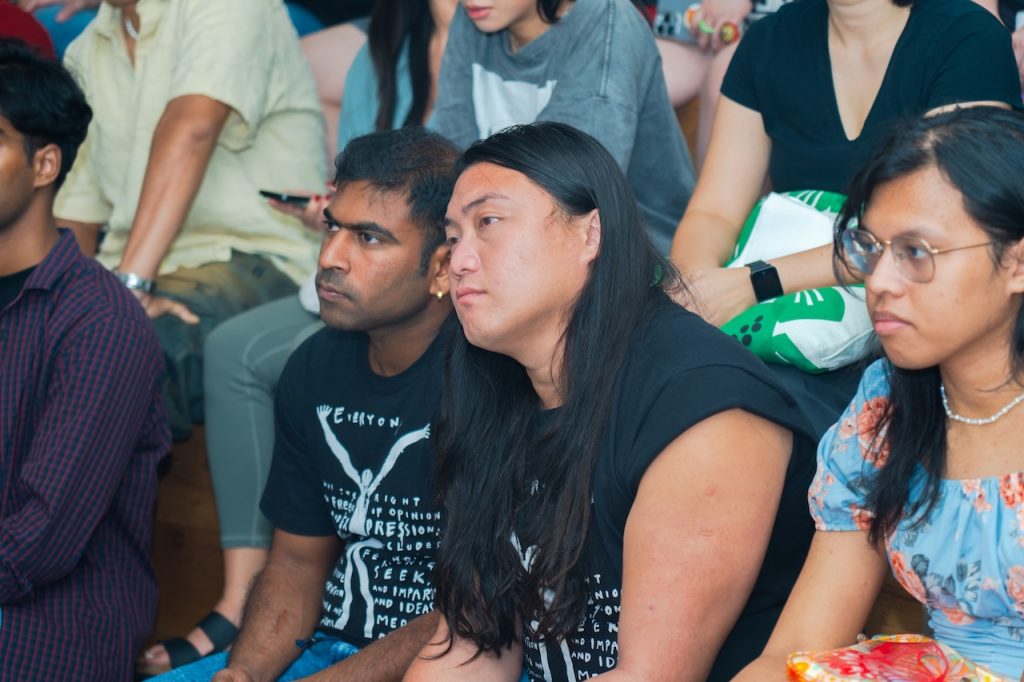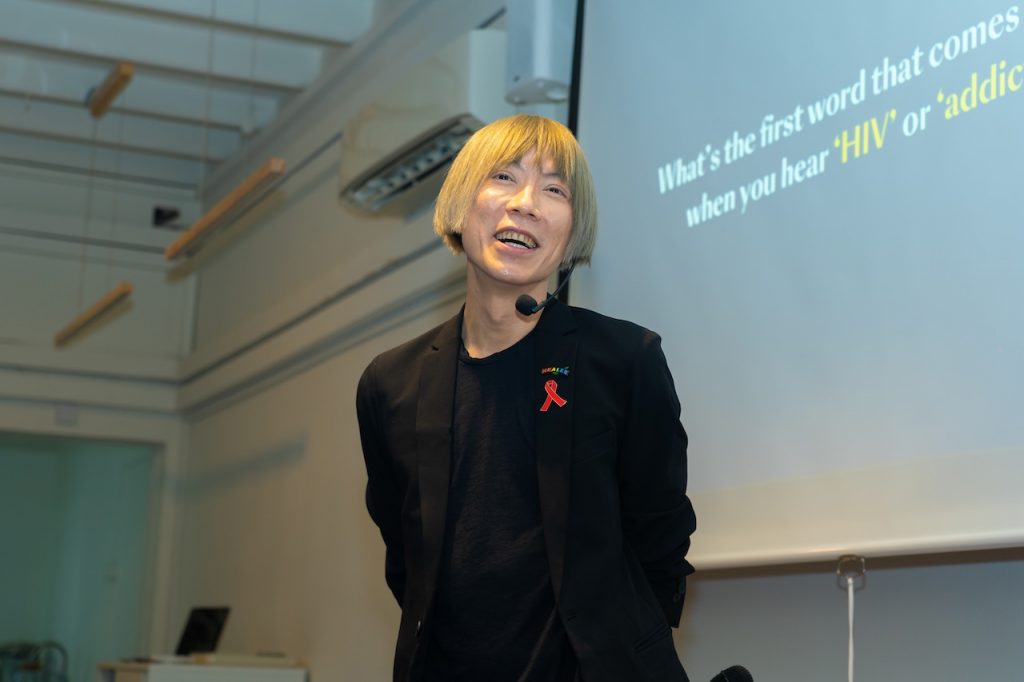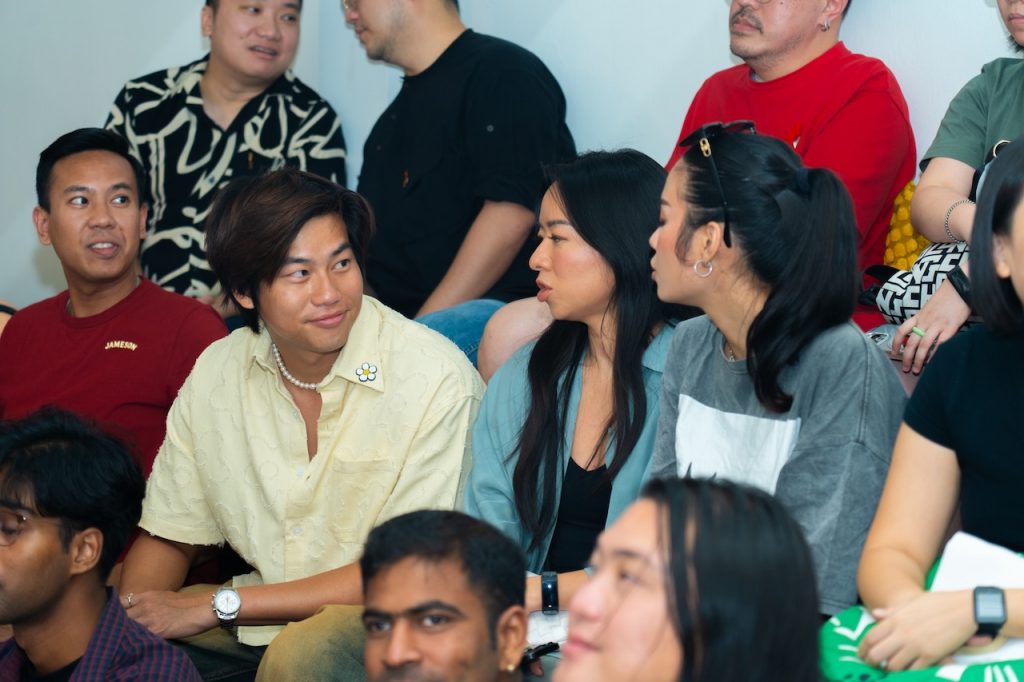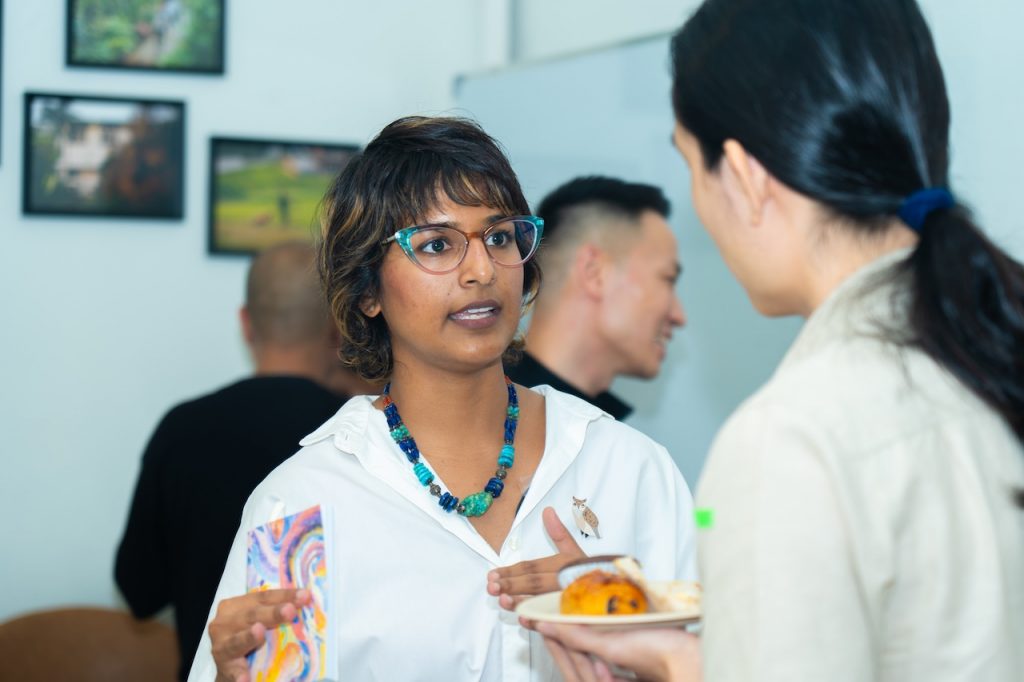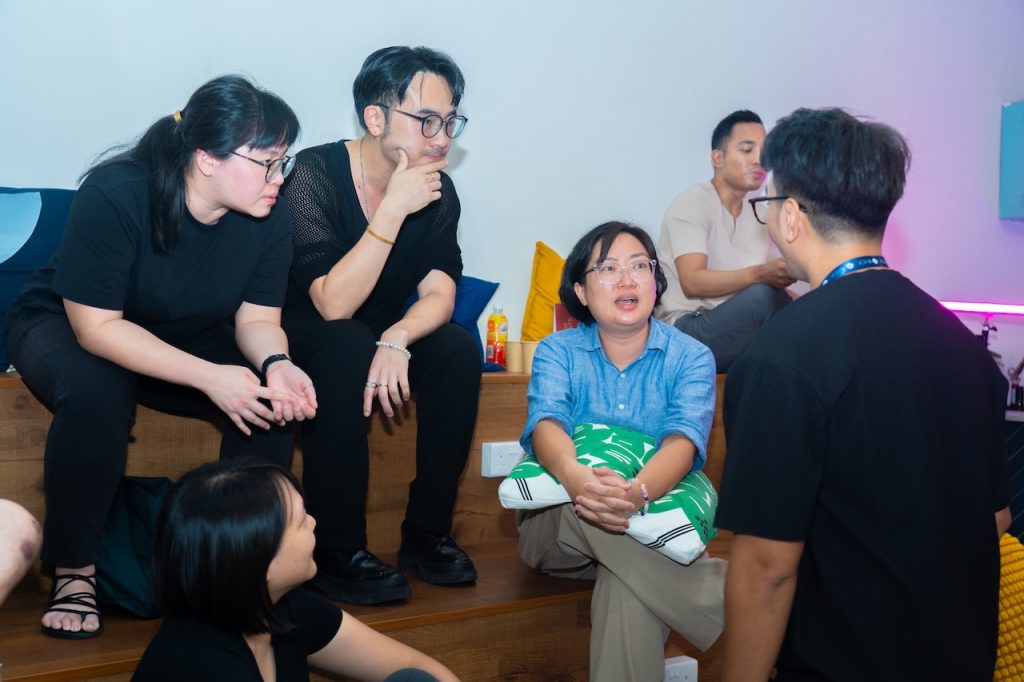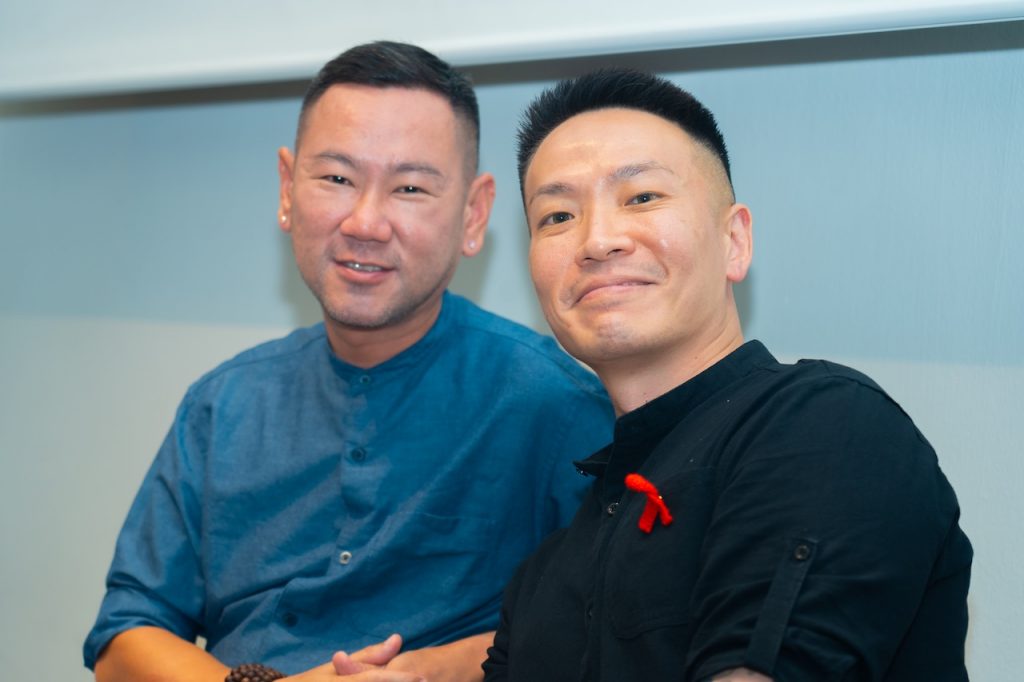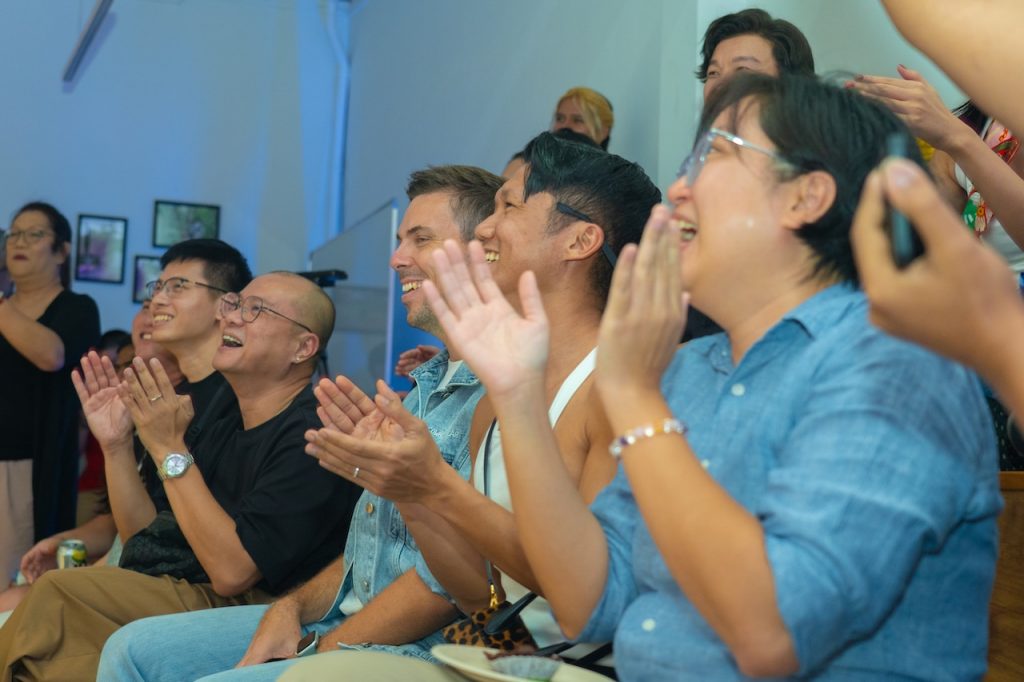All images by Xue Qi Ow Yeong for RICE Media.
When my Uncle Leonard fell ill, my family told me that his diagnosis was cancer. They didn’t know how to explain HIV or AIDS to a seven-year-old.
I was watching cartoons with my cousins when he passed away in January 1995 at the age of 36. I was only nine.
I recall my father ushering me into my uncle’s ward at the Communicable Disease Centre to say the final goodbye. His eyes were grey and looked almost translucent.
“If his heart stopped, can’t you apply CPR to revive him?” I asked.
“It’s not that simple,” my dad replied. My dad, who had quit smoking, lit his first cigarette in years.
The government ruling back then stated that HIV-positive individuals had to be cremated or buried within 24 hours of death, so my uncle’s body was swiftly gurneyed away after we said our final farewells.
If you’re wondering how long we took to come to terms with losing him… well. It’s 2024, and his belongings in our house are still exactly how he left them.
A fire burns within me to do what’s right by him, fanned by my indignance over how he suffered. During the 1990s, when the medical treatment available for HIV/AIDS patients was in its infancy, this disease spelt a death sentence.
And as if that wasn’t enough, HIV/AIDS vilified the diagnosed when it was portrayed as divine retribution for homosexuality and implying that they are promiscuous. The perceived threat to public health provided grounds for the police to clamp down on Singapore’s queer spaces.
As my uncle’s muscles atrophied, we tried to provide him with as much comfort and happiness as we possibly could. I was too young then to understand his struggles and comfort him, but I often wonder how those hazel eyes saw the world before they turned grey and translucent.
My uncle’s story is just one of many that highlight the need for compassion and awareness. People like Chronos Kwok are working to ensure that the stigma surrounding HIV/AIDS doesn’t silence or isolate others.
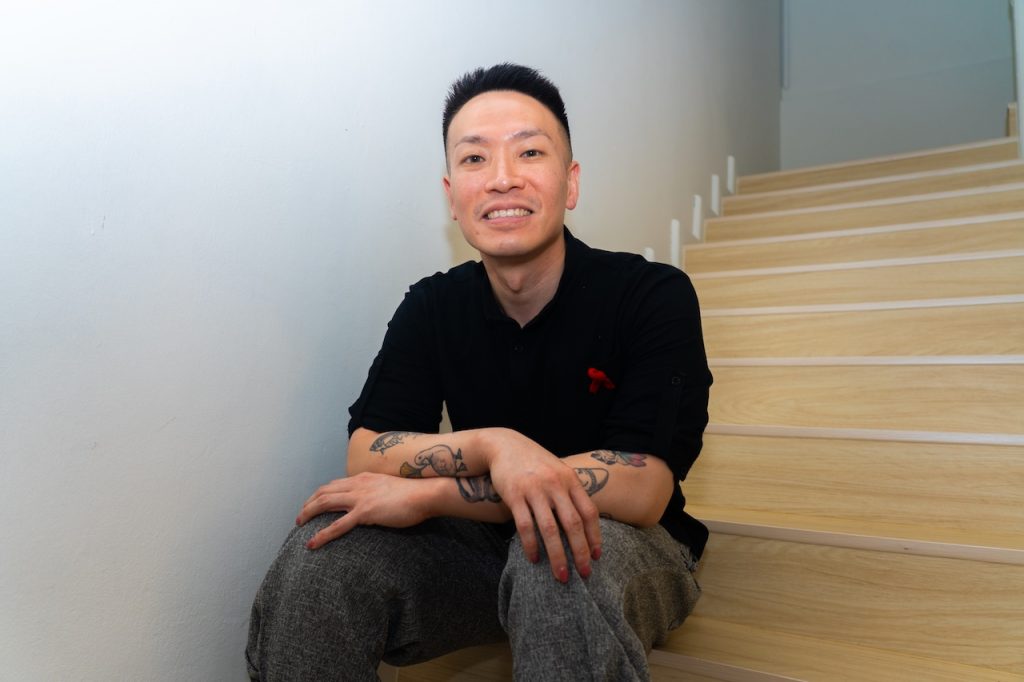
Chronos, 47, is no stranger to the brunt of HIV. His friend committed suicide after discovering he was HIV-positive, and that motivated Chronos to volunteer with Action for AIDS (AfA) as a counsellor.
“I had just started working after graduation, and that was the first time I encountered a suicide so close to me,” says Chronos.
“It had a profound impact on me—I remember wondering how hopeless and alone he must have felt to come to the decision to end his own life. I decided that I didn’t want something like this to happen to another person, which is why I joined AfA as a volunteer.”
18 years after joining, Chronos is now the Executive Director of AfA. His mission remains the same: championing prevention and awareness for a still-misunderstood disease. Education has been key to not only decreasing infections but also addressing misconceptions about HIV/AIDS.
To this end, he has spearheaded many memorable awareness campaigns in Singapore, ranging from a touching web series to rousing fundraisers.
On November 30th, 2024, just ahead of World AIDS Day, Chronos and his team hosted the 14th Singapore AIDS Conference with the theme ‘Communities in Action’. The event drove home an important message: to truly end HIV and STI transmission in Singapore, healthcare providers, researchers and policymakers need to team up with the communities affected.
“We have the potential to end the HIV epidemic in Singapore by 2030,” Chronos shared passionately. “But it’s not just about medical interventions. It’s about tackling stigma, making care affordable and accessible, and building a society that values everyone’s health and dignity.”
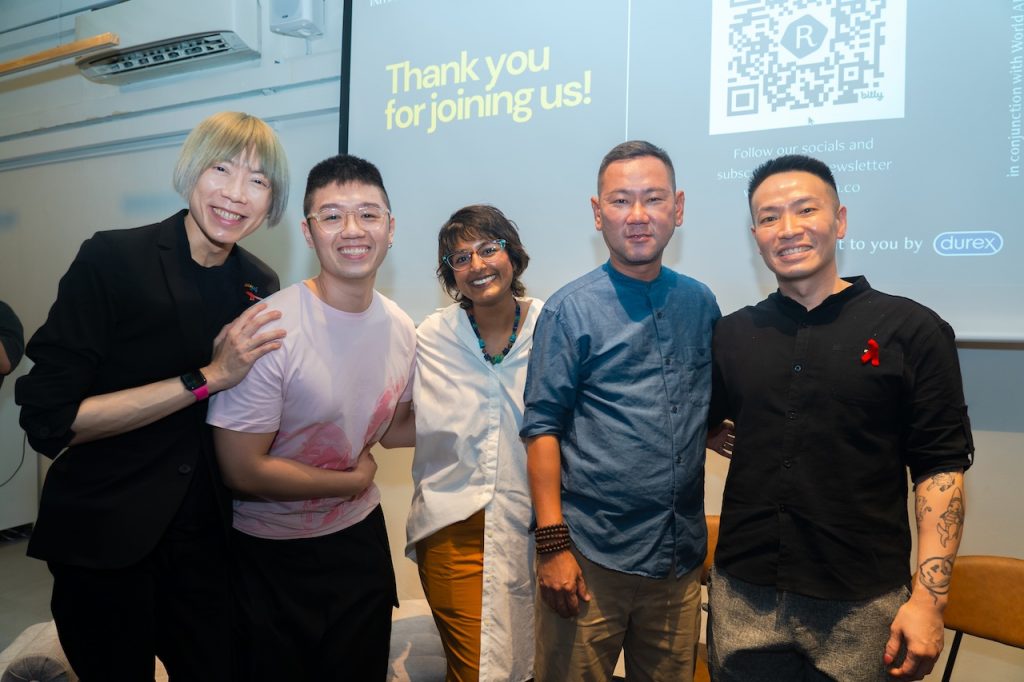
One of the big announcements at the conference came from Dr Janil Puthucheary, Senior Minister of State, Ministry of Digital Development and Information & Ministry of Health. Starting January 2025, HIV self-testing kits will be introduced in pharmacies islandwide.
In other words, anyone can pop into a selected Guardian or Watsons, grab a kit, and test themselves—no need to face the potential discomfort of a doctor’s visit. Information on test centres and pharmacies carrying self-test kits is also available to the public.
“People might not want to go to an HIV testing centre because HIV/AIDS is still stigmatised,” explains Chronos. “Enabling more people to take HIV tests in the privacy of their own homes will help us with earlier detection and treatment.”
The introduction of HIV self-testing kits started as a pilot programme in August 2022, and proved to be safe, effective and widely accepted by the public.
As of March 2024, people with HIV are no longer required by Singapore law to disclose their HIV status to their sexual partners, so long as their viral loads have been undetectable for at least six months. This law was amended to encourage higher-risk individuals to seek regular testing and treatment.
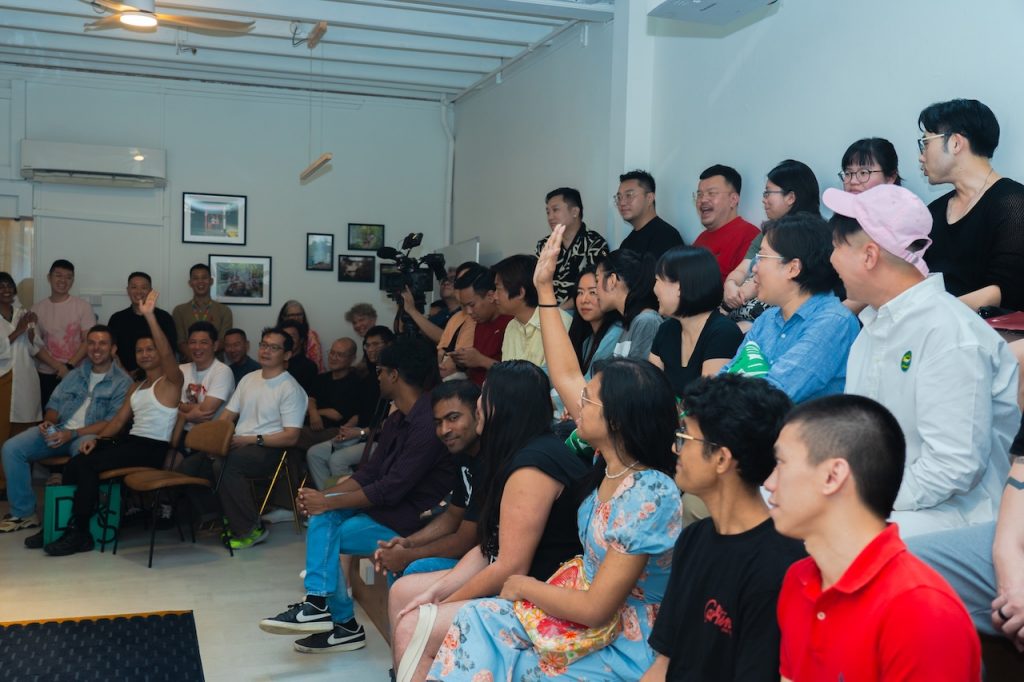
Good News From the Frontline
Conference attendees were delighted by the news of the wider availability of self-testing kits.
To add to the elation, presentations at the conference highlighted that HIV infections are still on a downward trend here. However, these numbers are decreasing at a slower rate than before.
“We have to be mindful of this slowing decline; we can do a lot more,” says Chronos, whose team published an important Community Blueprint in late 2019.
This blueprint is based on extensive research that AfA conducted together with partners like The Greenhouse and Project X, and has served as an invaluable road map for eradicating HIV/AIDS in Singapore.
The United Nation’s 95-95-95 target is to raise patients’ awareness of their own HIV status and the treatment and suppression of HIV/AIDS, all to 95 percent by 2030. Dr Puthucheary announced on November 30th that Singapore’s HIV statistics have improved to 85-94-93.
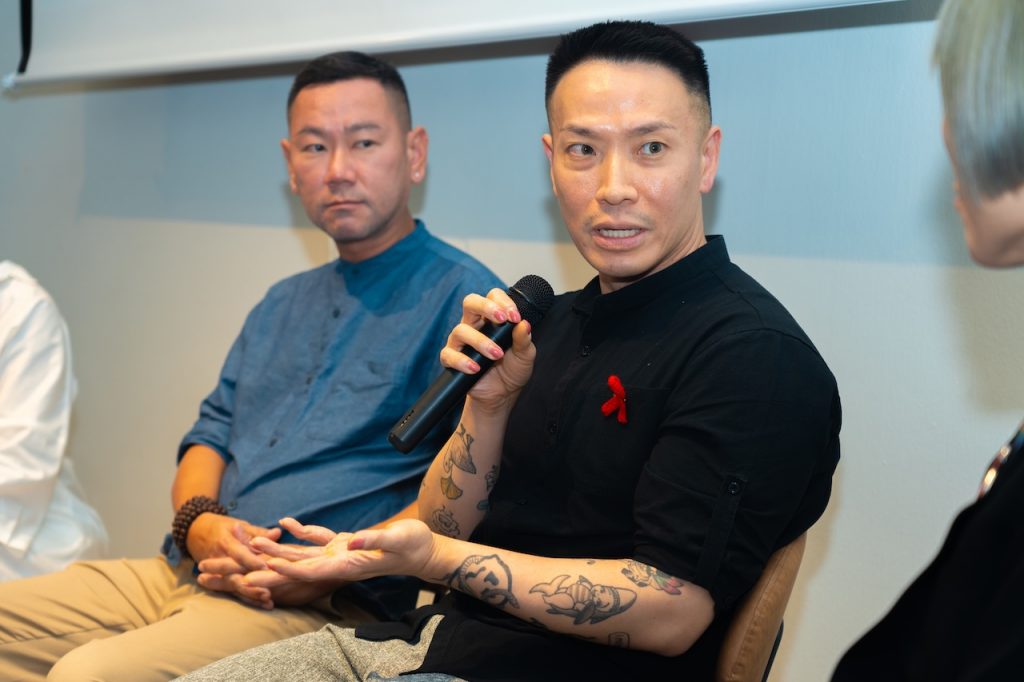
Even though HIV-positive persons today enjoy better quality of life and longer life expectancy thanks to medical advancements, Chronos points out that we still have a long way to go in terms of reshaping societal mindsets.
“This chronic condition is no longer a death sentence, but it is still heavily stigmatised. Besides worrying about the condition’s impact on their general health and treatment costs, people living with HIV fear being rejected and often worry about their HIV status being made known to others without their consent.”
A Breakthrough in Testing
At this recent conference, AfA and its partners produced a midpoint report of the 2019 Community Blueprint, which they are using to refine strategies and make recommendations for achieving their 2030 goal of subduing HIV/AIDS. And it goes beyond simply the LGBTQ+ community.
“We are still seeing about 50 percent of new HIV infections being diagnosed at a late stage, and less than 5 percent of new infections among heterosexual men were detected through voluntary testing.”
To this end, the AfA has been conducting anonymous HIV testing since 2001, operating a Mobile Testing Van since 2011, and championing the wider availability of self-testing kits.
Currently, these test kits are only available at the AfA test sites and the Department of Sexually Transmitted Infections Control (DSC) Clinic.
“Regardless of where they are tested, we hope that we can continue to stress the importance of regular testing, especially among those who are sexually active, so that they can keep their sexual health in check. Taking PrEP (Pre-Exposure Prophylaxis) is also highly effective in preventing HIV.”
Arresting the Epidemic
While Chronos and his team are celebrating this major milestone for HIV detection, he emphasises that HIV-related discrimination still lurks in our society.
He highlights that there are currently no laws protecting individuals living with HIV from workplace discrimination—and that misinformation and prejudices are often passed down through generations.
“Your peers might shun you, and even your own family might not accept you, so some people would rather not test or know their HIV status,” he remarks.
“Medical science and treatment options have vastly improved, but society’s attitudes and views have not caught up with science.”
Misconceptions around HIV/AIDS are one of many crevices where ignorance festers, and by addressing them, we are forcing ignorance into the light.
Nonetheless, the greater accessibility of HIV self-testing kits might encourage more individuals to proactively test themselves, free from judging eyes. And we must be mindful that post-test counselling, treatment and support for those who test positive will be key to maximising the kits’ effectiveness.
This step forward underscores Singapore’s commitment to providing equitable healthcare solutions. But prevention is always better than the cure, as the old adage says—there are always condoms and Pre-Exposure Prophylaxis (PrEP) for a comprehensive HIV prevention strategy.
In any case, the availability of HIV self-test kits is already stirring public conversations. There’s a promise of progress when we have discussions surrounding the disease and spark broader dialogues on stigma.
Towards a Stigma-Free Society
If anything, Chronos and his contemporaries’ admirable work underlines the importance of combating both the medical and societal challenges of HIV/AIDS.
Their relentless efforts have landed them many significant wins, including the accessibility of testing kits. We’re far removed from the climate of nescience and trepidation that clouded the ‘90s.
Their advocacy reminds us that to truly triumph over HIV/AIDS, we will require society’s empathy, education and unwavering support. Support that my uncle never saw.
As the youngest and first child of a fishmonger to attend university, Uncle Leonard joined Singapore Airlines in the ’80s and rose to become a high flyer in both senses of the word. Now that I’m his age, I get why my family wailed and ugly-cried the day he died—he is remembered today as a gentleman who inspired the best in others.
I sometimes wonder how much good he could have achieved had his life not been cut short by HIV/AIDS just one year before the game-changing discovery of HAART (Highly Active Antiretroviral Therapy).
Among my uncle’s accessories that sit neatly in our house are his beloved silk ties. To important functions, I proudly wear these ties of a man who was embarrassed and ostracised.
It’s a piece of him that I bring with me in the hope of saying to him: “We remember the pain you endured, and we’re working hard to make sure no one else suffers as you did.”
